I would like to welcome author and artist, Marjorie Price. Although born in Illinois, she has spent a great deal of time in Europe.
Shelagh: Hello Marjorie, please tell everyone a little more about yourself.
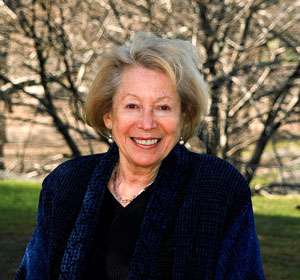 Marjorie: I grew up in Evanston, Illinois and graduated from Stanford University in 1951. After graduation, I worked in television in San Francisco, studied painting and acted in local and regional theater. In 1953, I made my first trip to Europe and stayed six months. In 1960, I left for Europe a second time and remained for nearly twenty years.
Marjorie: I grew up in Evanston, Illinois and graduated from Stanford University in 1951. After graduation, I worked in television in San Francisco, studied painting and acted in local and regional theater. In 1953, I made my first trip to Europe and stayed six months. In 1960, I left for Europe a second time and remained for nearly twenty years.
After my marriage to a French artist and the birth of my daughter, Danielle, my husband and I purchased half of an ancient hamlet in Brittany to spend summers in the countryside. The village was called La Salle. When the marriage broke up, I moved to live at La Salle year round. There, I forged a friendship with Jeanne Montrelay, a remarkable, elderly peasant woman who lived in the nearest farmhouse across the road and who was the inspiration for my recent memoir, A Gift from Brittany.
In 1970, I moved to Rome, Italy, with my daughter, where I devoted myself to painting, exhibited my work in galleries and where my graphics are represented in the permanent collection of the National Museum of Copper Etching.
My work is represented in many private and public collections in Europe and the United States. In 1978, I returned to the United States and settled in New York, where I continue to work as a writer and painter.
Shelagh: When did you first start writing and in what genre(s)?
Marjorie: Looking back, Shelagh, I have always written short stories, essays, and poetry. For years, I was particularly interested in children’s books. In 1980, my art book for children, AlphaDabbles, was published, and a second book for children, 123 What Do You See? was published in 1995. My memoir, A Gift from Brittany, was my first full-length book, and in writing it, I grew to love the process of writing as much as I love to paint.
Shelagh: When you started writing, what goals did you want to accomplish? Is there a message you want readers to grasp?
Marjorie: When I started writing my book, I don’t think I had a goal or a message in mind. I had just had serious back surgery. I couldn’t walk or paint! I started writing about an unforgettable time in my life, in the 1960’s, when I went to France, married an exciting French artist, and lived in a remote village in Brittany. I got to know and grow close to an elderly peasant woman who meant so much to me that I had often thought of writing about her — but until then, never had time. Beginning the book, I had no idea where it was going to lead me. All I knew was that my pain stopped as long as I kept writing. It was well along the way that I began to understand why I was writing the book, what I had to say, and how the experience of knowing Jeanne and living in the village had changed forever how I saw the world.
Shelagh: Briefly tell us about your latest book. Series or stand-alone?
 Marjorie: A Gift from Brittany is not a part of a series, although I have begun a sequel about the years when I lived in Rome during the seventies. Both are stories about a young, adventurous and aspiring artist — the girl I once was — who finds herself, and along the way, finds love in unexpected places.
Marjorie: A Gift from Brittany is not a part of a series, although I have begun a sequel about the years when I lived in Rome during the seventies. Both are stories about a young, adventurous and aspiring artist — the girl I once was — who finds herself, and along the way, finds love in unexpected places.
Shelagh: What’s the hook for the book?
Marjorie: There have been many books about Americans living in Europe where the protagonist remains an observer or outsider. In A Gift from Brittany, I was not a tourist. I had the unique opportunity of living in a remote village in Brittany where the way of life had changed little since the Middle Ages. Far from remaining an observer, I found myself a part of a world of centuries past and was enriched and transformed by an ancient culture that no longer exists. The experience changed my life.
Shelagh: How do you develop characters? Setting?
Marjorie: Since A Gift from Brittany is a memoir, I tried to remain as true to the characters as possible. I developed character and place by remembering as faithfully as I could the village, the events and the people — even the memory of conversations and facial expressions came back to me. The pull was so strong to remember that I felt I was reliving that time of my life.
Shelagh: Who’s the most unusual character?
Marjorie: Without a doubt, it was Jeanne Montrelay, who is the reason for writing the book. Knowing her was pivotal in my life. Yet, even now, when I look back, coming from the suburbs of Chicago, it’s a mystery how we became so close. She was 68 when I met her; I was in my late twenties. She had three cows to her name. She was illiterate, dressed in black, called herself a peasant, and had never left the village. Outwardly, we had nothing in common; yet from the beginning, we had a kind of rapport, a deep understanding of each other and eventually became inseparable in spite of barriers of age, language, culture and life experience.
Shelagh: Do you have specific techniques to help you maintain the course of the plot?
Marjorie: I think it was trying to remember the sequence of what happened during those years, and balancing my memory with trying to tell a good story.
Shelagh: Do you have a specific writing style or preferred POV?
Marjorie: As a painter, I’m very visual and I love the capacity of words to create a picture. In my memoir, I tried to paint a portrait of the village, the villagers, and especially of Jeanne Montrelay with words, much as I would paint a painting. I wanted each character and each scene to come alive, visually, for the reader.
Preferred POV? I enjoy writing fiction, but I seem more comfortable writing in first person. At one point, when I began writing my book, memoirs were looked upon as poison by literary agents. Friends suggested I write the book in third person. I revised a few chapters, changing my point of view to third person. But it didn’t work. It was my story.
Shelagh: How does your environment/upbringing color your writing?
Marjorie: Having grown up in a homogenous and privileged society where everyone took modern comforts for granted, it came as a shock to me at first to be among people who lived on only the barest necessities of life. Where I grew up, people were often judged on how much education they had and their material achievements. But living among people who had never been to school, who didn’t know how to read or write, who had never seen a movie or watched TV, and who lived off the land taught me that when people have no degrees attached to their names and no bank accounts, what’s left is simply who we are. What matters are basic human qualities.
Perhaps because I grew up in a place so different from La Salle and met people who were so different than anyone I had ever known or imagined, the experience was all the more powerful, unforgettable and life-changing. I’m sure it influenced what I had to say and the way I portrayed the village and their way of life.
Shelagh: Share the best review (or a portion) that you’ve even had.
Marjorie: The comment by Malachy McCourt is the one that pleases me the most, because in his unique voice, it seems to me to capture the flavor of the book.
“This book is indeed a gift…A child, a house, a dog, a new country, another language, a snake, a man: all tumble about in glorious chaos in this soulfelt memoir so beautifully written. It’s lively and lovely and funny, too.”
– Malachy McCourt, author of Malachy McCourt’s History of Ireland
Shelagh: What are your current projects?
Marjorie: I’m currently preparing an exhibition of my Bathers Series paintings, which will open on April 3, 2010, at the Delaplaine Visual Art and Education Center in Frederick, MD. While it sounds like a long way off, I still have to produce a lot of big paintings between now and then. I love to be painting full time again, but I long to have time to get back to work on my book about living in Rome in the Seventies.
Shelagh: Where can folks learn more about your books and events?
Marjorie: An introduction to A Gift from Brittany, photos of the village and excerpts from the book, as well as an overview of my career as a painter, are on my website, www.marjorieprice.com.
Shelagh: Thank you for joining us today, Marjorie.
Marjorie: My thanks to you for inviting me to be interviewed on the Literature & Fiction blog.





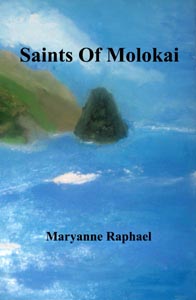
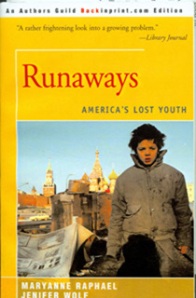



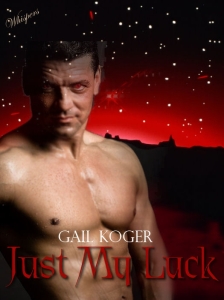





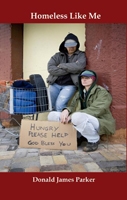

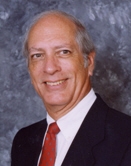
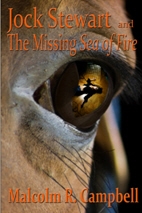

















 Stumble It!
Stumble It!

